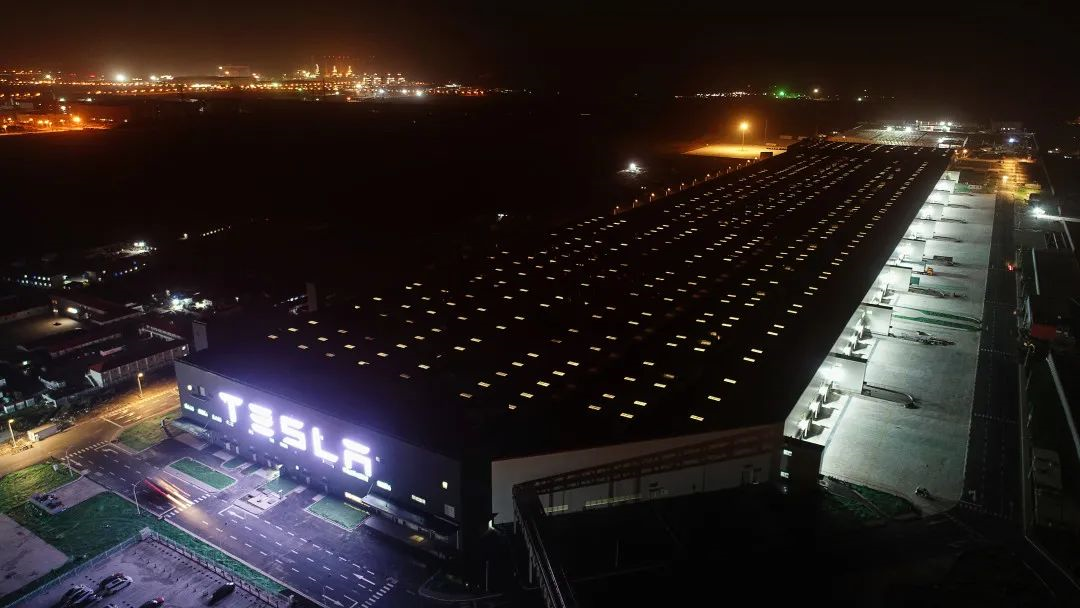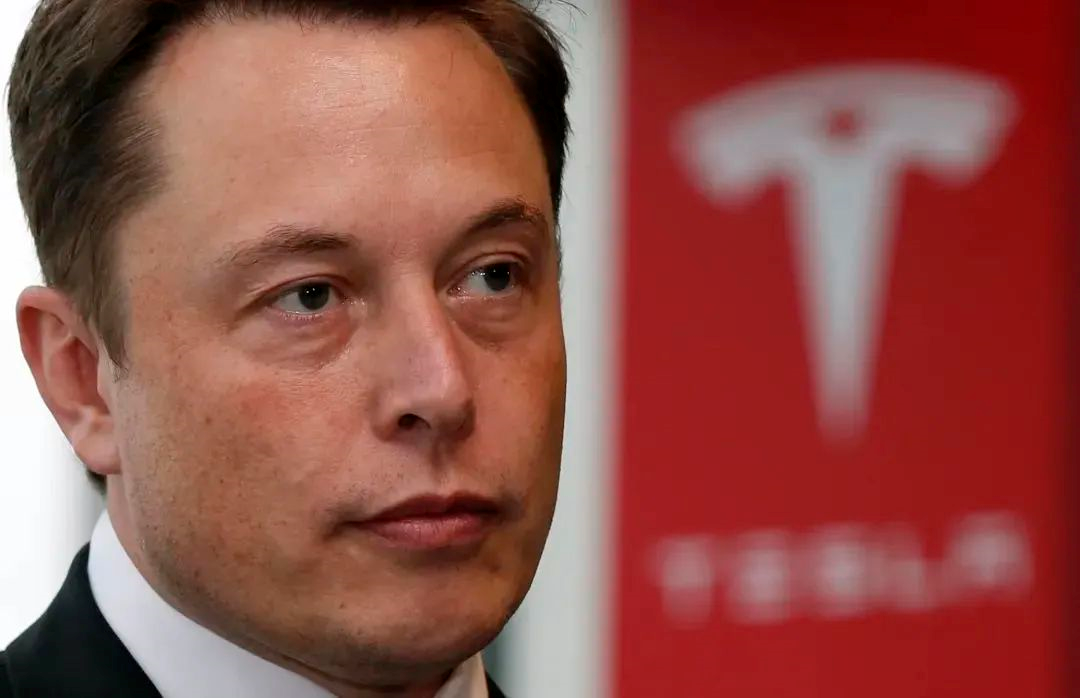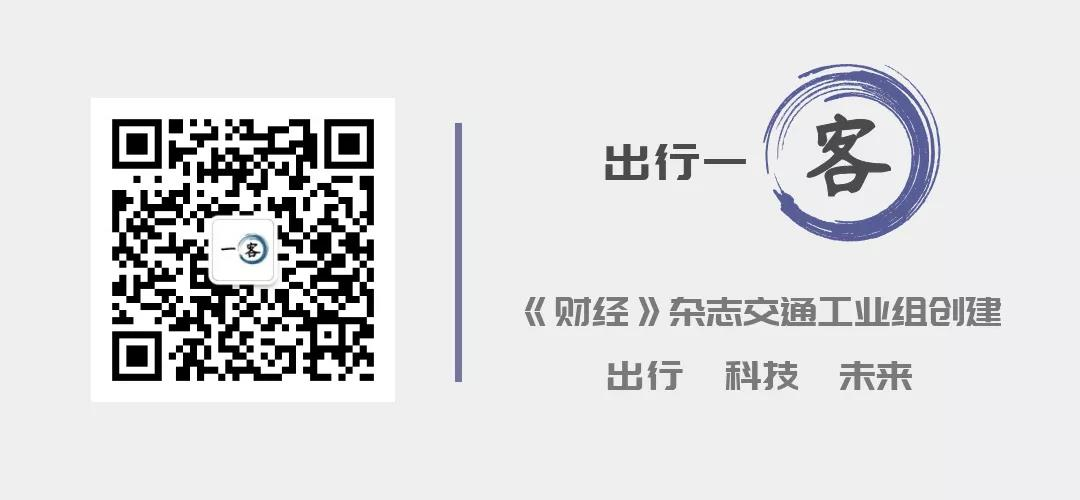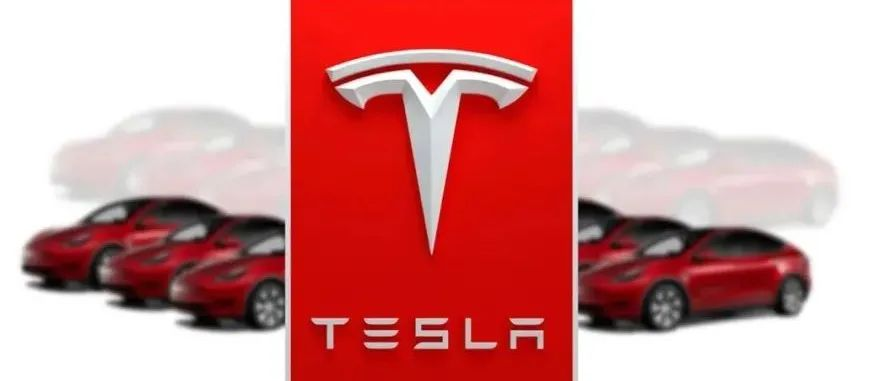This article is licensed from “ChuxingyiKe” (“出行一客”) (WeChat Official Account ID: carcaijing) and created by Wang Jingyi, Guo Huaiyi, Guo Yu, Li Xiying, and Shao Wei, under the transportation industry group of “Caijing” magazine. Edited by Li Xiying and Shi Zhiliang.
Abstract: In the business aspect, Musk is an expert, and Chinese entrepreneurs aspire to become the next him; however, he lacks the talent to “resonate with others,” and his focus on efficiency has resulted in divided opinions, some appreciate him even when he is gone, while others criticize him harshly.
At the latest Tesla AI Day on October 1st, Tesla and CEO Musk presented the latest developments of technologies such as humanoid robot Optimus, supercomputing training system Dojo, and FSD intelligent driving.
At first glance, the only thing related to cars is FSD intelligent driving, and Tesla is becoming less and less like a traditional automaker. However, this statement is only true for the latter half.
Tesla does more than just sell cars. Its business also includes solar panels and clean energy storage. The intelligent driving technology is not only applied to cars, for instance, the humanoid robot Optimus employs Tesla’s technology accumulation in visual recognition and motion planning for autonomous driving.
The intelligent driving technology is also applied to Tesla’s California factory production line. Allen Pan, the former project manager for the unmanned California factory project at Tesla, told “Caijing”‘s reporter that the production line at the California factory is a universal artificial intelligence that is not based on specific scenarios, “If Musk’s other companies need it, they can also use it.”
The horizontal and vertical application of a technology in different dimensions is already enough for other automakers to learn and pursue. However, in Musk’s eyes, Tesla is not his proudest achievement. His ambition is on a cosmic level, and the solution to the energy problem on Earth is just one step. His ultimate goal is to help humans migrate to Mars.
This kind of ambition is praised by Chinese entrepreneurs. Management experts admire him as a “courageous entrepreneur” and acknowledge that “first principles are indispensable for disruptive innovation.” Entrepreneurs all want to create “China’s Tesla” and “China’s SpaceX.”
“Why can’t China produce a Musk?” Once became a question during the new era of industrial innovation, similar to the “Why can’t our school cultivate outstanding talents?” asked by Qian Xuesen in the past.
Whether looking at China from the foreign perspective or looking at the industry from within, Tesla can become a barometer for China’s market expansion and industrial innovation under the background of globalization, and its typicality is not limited to the new energy automobile industry.
Musk’s “Cosmic Ambition”
Just as Maradona surpassed soccer and following Jobs, Musk is breaking barriers to become a global idol.There is no accurate title that can define who Musk is. He serves as the CEO of Tesla, as well as the CEO of the space exploration company, Space X, the brain-machine interface company, Neuralink, and the tunnel boring company, The Boring Company. Perhaps this is the result that Musk hopes to see, as he dislikes being defined, whether it is himself or his subordinate companies, even though Tesla’s car annual sales are nearly one million and it has the title of the highest-valued car company. He has repeatedly stressed on many occasions that Tesla is not just a car company, but an AI technology company that integrates software and hardware.

Although he holds many titles, he is extremely confident in his ultimate dream of sending humans to Mars. From his current position of holding multiple jobs to his ambitious plans for space exploration, Musk has his own logic. These companies and the technological achievements that accompany them are just a natural byproduct of his journey to realizing his dreams.
Tesla is the most well-known enterprise in Musk’s business empire and is also an important part of its ambitious plan for space exploration. If sending humans to Mars is divided into two stages, the first step is to work on Earth, and the second step is to travel to Mars, then Tesla’s main focus is on the former. In early 2017, Musk renamed “Tesla Motors” to “Tesla” – the last time someone did this was Steve Jobs renaming “Apple Computer Company” to “Apple Inc.” Tesla stated on its website that its business scope includes pure electric vehicles, solar panel technology, and clean energy storage.
The ability to reach almost every corner of the new energy industry chain cannot be simply summarized as “excessive wealth”. Tesla’s ultimate goal is to create a sustainable world in which most modes of transportation can be powered by electricity, and electricity can be produced by sustainable sources of energy. In Musk’s view, solar energy is the most ideal sustainable source of energy.
“Over the past decade, the electricity generated by Tesla’s solar panels has exceeded the total amount of electricity consumed by Tesla factories and vehicles on the road.” Musk said at the August 4th shareholders meeting that in 2021, Tesla sold the equivalent of 4 GWh of solar roofs, Powerwalls (energy storage systems), and other energy storage products, occupying more than 15% of the global market share.
In the process of realizing Tesla’s ultimate goal, many leading technologies have emerged, such as the epoch-making electronic and electrical architecture, the industry-leading three-electric system, the continuously imitated integrated die casting technology, the self-developed hardware and software automatic driving solution, and even a humanoid robot called “Optimus”.Many car companies are also following this strategy – from a new energy car company to an artificial intelligence (AI) technology company. Artificial intelligence has multiple applications, and autonomous driving is one of the most common application scenarios.
However, Tesla’s use of autonomous driving technology is not limited to cars. For example, the “Optimus” humanoid robot prototype launched by Tesla on October 1st at AI Day, which Musk referred to as Tesla’s “most important product” this year, heavily uses Tesla’s technology in the field of autonomous driving. On August 11th, Xiaomi, which announced its entry into the car market, had already launched a humanoid robot “CyberOne”, internally referred to as “Iron Egg”, even before producing cars.
As Zheng Yun said, in the field of intelligent electric vehicles, whether it is electrification, battery positive electrode materials, or assistance driving and autonomous driving, Tesla has clearly played a leading role, helping the industry avoid detours.
But if you expand your focus to Musk’s entire business empire, Tesla’s positioning may be more like a production tool. Allen Pan believes that Tesla is a company for manufacturing and honing techniques. Tesla is responsible for producing everything Musk wants, such as producing parts for Space X; some of the data used for analysis in Neuralink also came from Tesla.
Allen Pan believes that Musk himself is a real super company, and all the companies in his business empire are just departments. These branches will be interconnected, and Musk encourages employees to learn from these companies.
And his ultimate goal is to send humans to Mars. This is Musk’s plan to save humanity – if sustainable energy cannot save the Earth, what should we do? Then send humans to Mars. In 2002, Musk founded SpaceX.
SpaceX has achieved many achievements that many national space agencies have not achieved. “Only the United States, Russia, China, and Musk master space launch and recovery technology globally.” The US Academy of Engineering believes that Musk has made breakthroughs in the design, engineering, manufacturing, and operation of reusable launch rockets, sustainable transportation, and energy systems.
With these achievements, Musk was elected as a member of the US Academy of Engineering in February 2022. In April of last year, SpaceX also won the exclusive contract of the National Aeronautics and Space Administration (NASA) to build a spacecraft and send astronauts to the Moon.
The Financial Times named Musk as the person of the year in 2021, believing that he triggered a historic transformation of the world’s car industry to electric vehicles and had an unusual adventurous and challenging spirit, and his achievements were not limited to cars.
When asked why he founded these companies, Musk’s explanation was only one sentence: “I’m trying to take a series of actions that I think are most likely to make the future better.”# Elon Musk: A Natural Advertiser for Tesla
Tesla’s world-renowned icon Elon Musk seems to be a natural advertiser for the Tesla brand. In just a few words on Twitter, he can ignite the popularity of audio app Clubhouse or drive the skyrocketing value of virtual coins such as Dogecoin and Bitcoin. No other car brand CEO can replicate Musk’s celebrity effect.
According to Zheng Yun, “A charismatic leader with personality, strong business sensitivity, technical requirements, and unique insights into transcendent products is Tesla’s greatest asset.” In Zheng’s view, Musk is also an excellent product manager who can push things forward.
However, managing multiple companies at the same time has raised concerns from the outside world about whether Musk’s actions are detrimental to Tesla’s development. Marc Sachon, a professor at IESE Business School at the University of Navarra in Spain, describes Musk as “dancing at too many weddings”, indicating that he is spreading himself too thin.
Marc Sachon told a journalist from “Finance” that being a car company CEO is a full-time job. Managing a company of Tesla’s size requires 24 hours a day, even for Musk. “Musk is becoming a burden to Tesla and its employees. I think he should hand over management to an experienced executive and continue to be a pioneer in technology.”
Two Perspectives Behind Efficiency First
Exacting businessman, volatile boss, “he doesn’t want to resonate with earthlings, he just wants to go to Mars.”

“We are Tesla, we are changing the world, and we are willing to rethink everything.” This is the concept that Tesla instills in its employees from the start of their training.
To understand how Musk affects businesses and individuals, you must first understand his way of thinking – first principles: everything can be reduced to its essence, and reasoning can begin from there.
Musk used the example of battery cost; “Someone once argued that the battery pack cost was extremely expensive, about 600 dollars per kilowatt-hour, which would remain high in the future. If you think from first principles, I would consider what materials made up the battery, what their spot market price is, and you end up with only 80 dollars per kilowatt-hour. So, you just need to come up with clever ways to combine these materials put them into the battery pack, and get a battery that is much cheaper than people think.”
Batteries are Tesla’s core competence. In 2017, when Tesla Model 3 was officially delivered, the 354-kilometer (standard version) and 499-kilometer (long-endurance version) range capabilities were unparalleled globally, when other high-end electric vehicles in China had an actual range of less than 300 kilometers.The entrepreneur, who studied physics, believes that in most cases, people use analogical reasoning to solve problems by imitating others with slight modifications. The result is only small iterations of development. Only by exploring the essence of things can true innovation be achieved.
With Tesla’s success, first principles have swept through the automotive industry. A search for this keyword reveals numerous articles such as “First Principles of Intelligent Driving,” “First Principles of User Experience: New Energy Vehicles,” and “How to Use First Principles to Judge the Future Development of the Automotive Industry.”
Leaders of car companies also express their ideas. In the eyes of Fu Qiang, co-founder and president of AIWAYS, first principles revolve around the user to build an intelligent car ecological system. In the words of Li Bin, CEO of NIO, user experience is NIO’s first principle.
Behind the first principles is a working philosophy that advocates efficiency above all.
This is reflected in Tesla’s corporate mission: “To accelerate the world’s transition to sustainable energy.” It is also continually instilled in Tesla employees in training sessions with six sentences: “We maintain competitiveness and strive for excellence. We are willing to tackle difficult problems hands-on. We have a start-up spirit and strong motivation. We don’t waste time on bureaucracy; we focus on achieving the mission. We work efficiently and intelligently. We work hard, love our work, and enjoy it.”
Efficiency above all leads to two extremes in the evaluation of Tesla and Musk: those who have worked for Tesla are either very grateful, or they speak ill of the company.
According to Ren Yuxiang, Tesla’s biggest competitive barrier is its people. There are many amazing companies out there, but what sets Tesla apart is the entire team. To compete with Tesla, you must understand the mentality, problem-solving ability, and execution of these people. With the right people, anything can be solved.
“When you solve the world’s toughest problems, the world’s best people will come to work for you,” said Gene Berdichevsky, a former senior executive of Tesla’s battery business. “For a full decade, Tesla has been the only choice in this field.”
For some, the sense of mission has increased. A Tesla China employee told a reporter for “Caijing”: “At Tesla, there is a sense of mission to drive industry change and improve the environment of the earth. The outside world may feel it’s virtual, but that’s how we see it. Personally, in the winter, my child coughs and has a runny nose because he is sensitive to the environment. So I thought, can we promote electric vehicles faster and reduce more emissions?”# Allen Pan Still Believes in Tesla After Leaving
Allen Pan still believes in Tesla after leaving. He summarized his several years of gain into three points: autonomous driving, cross-disciplinary, and hands-on problem solving.
However, for some people, it is a place they don’t want to talk about. Ju Mai, who worked at Tesla’s Shanghai Lingang factory for a year, declined a phone interview with a reporter from “Finance” and only wanted to communicate through written messages, saying “I am worried about losing control of my emotions.”
Just recalling the working environment at Tesla made Ju Mai feel “palpitations”. He described Tesla’s way of working as “the arduous working mode of manufacturing + the working time of the Internet genes”. “During my tenure (from early 2020 to early 2021), I did not require 996 or 007, but in order to complete the established tasks, I had to work tirelessly day and night. Mobile phones, emails, and video calls are always online, and it is normal to receive calls in the early morning.”
After more than a year at Tesla, Ju Mai witnessed too many people leaving. “Internally, it is said that if you endure the six-month probation period, you are a veteran. In contrast, many people left in less than three months or even on the day of their employment, and the turnover rate was too high.”
In the eyes of many employees, Musk does not care about the feelings of others. Just like his brother, Kimbal Musk, said: “In business, he is an expert, but he does not have the talent to ’empathize with others’.”
Who is China’s Musk
Are there any people like Musk among Chinese entrepreneurs? From Guo Shuqing and Jack Welch to Steve Jobs, everyone is discussing Musk. When can Chinese entrepreneurs become icons of the times? Why not the American XXX?
This is a topic that everyone is talking about.
First, there is a Chinese man who looks very much like Musk. He not only became popular on the Internet but also received Musk’s attention. Musk, who was born in South Africa, joked that he may have Chinese blood in him.
Apart from appearances, the list of candidates who share the same spirit is not long.
Li Shufu, the founder of Geely Automobile, is one of them. Twenty years ago, he built cars with fearless courage based on the idea that “a car is just four wheels and two rows of sofas”. Geely has now grown into the champion of independent brand sales.
Li Shufu’s business layout has many similarities to Musk’s, such as launching satellites, making cell phones and chips, and trying to create a “heaven and earth integration” smart travel ecosystem. On June 2, 2022, with the successful launch of the “Geely Future Travel Constellation” at the Xichang Satellite Launch Center with one rocket and nine satellites, Li Shufu, chairman of the company, became the second person in the world and the first in China to be an entrepreneur who makes cars and builds satellites at the same time. The other is Musk.
“For Tesla, what you see is only the surface, what we see is the essence. Tesla’s goal is not to make cars, making cars is just a carrier for its online technology.” This is how Li Shufu thought in 2018.BYD’s Wang Chuanfu is another one. He likes to speak on technology and products, and is one of the few leaders in Chinese car companies who frequently goes on stage personally to talk about technology and products.
According to media reports, Wang Chuanfu lives in Pingshan, far from the center of Shenzhen, and arrives at the office at 7:30 am every day. Even when traveling back to Shenzhen, he still works until 11 pm at night. He convenes the executive team and they must gather within five minutes. He requires the executives to report their work in as concise a manner as possible and not to say anything irrelevant. He once said that he could not understand how a trip could cost tens of thousands of yuan and found it “unbelievable.” This is similar to the pace of workaholic Elon Musk.
Four or five years ago, BYD had not yet become the global leader in new energy vehicle sales it is today. Going into the BYD factory, one could hear people calling Wang Chuanfu the “Chinese Musk.” “In fact, we prefer to call Musk the American Wang Chuanfu. They started making new energy vehicles almost at the same time. We have all seen how dedicated they were in their technological research and development, no worse than anyone else,” a middle-level executive told a journalist from Caijing magazine.
In 2022, Elon Musk, who has an undergraduate degree, was elected as a member of the National Academy of Engineering in the United States due to his huge success in scientific exploration and commercial application. This triggered a memory of an incident from three years ago: Wang Chuanfu, also an engineer and entrepreneur, was a candidate for the Chinese Academy of Engineering but ultimately failed to be elected.
“Why can’t China produce a Musk?” became a question reminiscent of Qian Xuesen’s “Why can’t our schools train outstanding talents?”
There are not many candidates for “Chinese Musk.” Not all entrepreneurs want to be in the limelight. However, many want to become China’s Tesla.
With the launch of the Model 3 in 2016, Tesla’s performance and valuation have continued to climb. The threshold and business logic of traditional carmaking are all changing. China has seen a wave after wave of new players entering the carmaking field, ranging from white and black appliances to real estate, insurance, and internet companies.
How to view Tesla? How to surpass Tesla? Whether at new car launch conferences, group strategy communication meetings, or shareholder meetings, this is a question everyone asks, from big shareholders, the media, professional investors to individual investors.
In the face of this soul-searching question, especially the new players in carmaking, they “turn the tables” and talk about how Tesla is planned, how it can be combined with their own car companies, and tell the industry logic they understand. When facing a problem, they will reply with a sentence: At the beginning, Tesla was also questioned, but Musk succeeded. The term “Chinese Tesla” and “Musk” are common in news reports.
Even Mengniu, which sells milk, wants to create the “Tesla” of the dairy industry. At a public event in 2020, Mengniu Group CEO Lu Minfang announced that they will create the “Tesla” of the dairy industry.The two industries are completely unrelated, but Yili has recognized Tesla’s digitization and globalization efforts. During a period of strategic transformation, Yili hopes to follow in Tesla’s footsteps and achieve two things: first, breakthroughs in digitization to transform into an ecological and platform-based enterprise, bringing about revolutionary innovation to the existing industry; second, to create a new marketing model that promotes their products globally, thereby achieving ascension.
Even companies that aspire to become the “Chinese SpaceX” are emerging.
“I began working in the private rocket industry in late 2015. At the time, SpaceX had just achieved the world’s first successful sea landing of a reusable rocket, which was a huge shock and inspiration for the industry,” says Huo Liang, founder of Deep Blue Aerospace, who was working for the state-owned China Aerospace Science and Industry Group. According to Huo, SpaceX brought internet thinking into the aerospace field and implemented project-based management, rapidly testing new ideas, verifying results and updating iteratively. From its technological roadmap to its underlying logic, Deep Blue Aerospace looks directly to SpaceX as the benchmark for the global private space industry, “we must quickly learn from advanced industry cases and develop rapidly by iterative research and development.”
Elon Musk, who has founded four large companies, is regarded as one of the greatest technology entrepreneurs in Silicon Valley and even the world, following in the footsteps of Steve Jobs. While he is often controversial in the United States, where he has been criticized in various fields from politics and economics to industry and personal behavior, entrepreneurs in China have always praised Musk and his companies.
He XPeng, CEO of XPeng Motors, said in a media interview that Musk has many advantages and that China needs entrepreneurs with his kind of courage. Guo Wei, chairman of China National Software, also said that Tesla is the best example of using first principles, which involves finding solutions to problems by studying problems at their most fundamental level.
Musk’s biography, “Elon Musk: Tesla, SpaceX, and the Quest for a Fantastic Future,” has been a bestseller in bookstores for a long time, and “Silicon Valley Iron Man” has become Musk’s most widely known nickname in China, although it does not appear in the original English version of the book. Musk’s advice on entrepreneurship has been turned into various articles and videos, and entrepreneurs are eager to share them.
Economists and management experts are tirelessly analyzing Musk’s advocacy of first principles. Gan Jie, vice-president of the Cheung Kong Graduate School of Business, dissected the thinking logic of first principles through Musk’s work on batteries: identifying and defining current assumptions, deconstructing current problems, and proposing new solutions. Zheng Gang, director of the Technology Entrepreneurship Center at the School of Management, Zhejiang University, believes that first principles are indispensable for disruptive innovation.The entrepreneurial spirit demonstrated by Musk is motivating Chinese entrepreneurs to be idealistic and aim high, even beyond national and global boundaries. They possess a realistic path to achieving their aspirations by mobilizing all external resources. Therefore, it is only a matter of time to achieve any goal.
In today’s prevailing anti-globalization sentiment, Tesla’s unique investment and industrial layout in China demonstrate that interactive engagement with the world’s most advanced companies and deeper integration with the largest and most promising market not only boost the development of the entire industry but also bring significant benefits to themselves. Chinese companies with strong market and manufacturing advantages, if they can work with industry giants with an open mind to innovate continuously, have a greater chance to stay unbeatable in the ever-changing global competition.

This article is a translation by ChatGPT of a Chinese report from 42HOW. If you have any questions about it, please email bd@42how.com.
